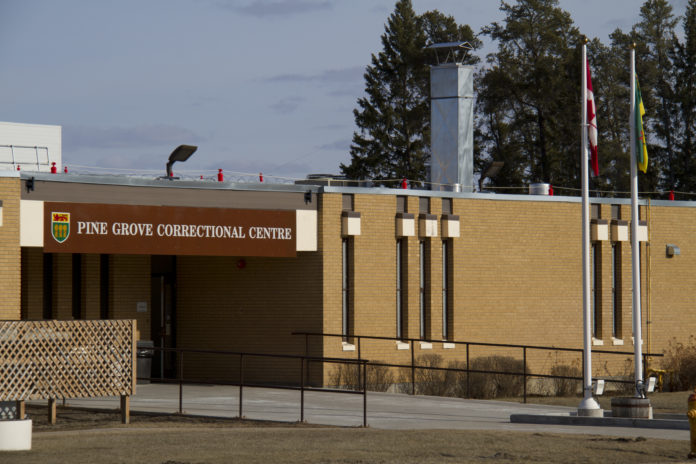by Thia James
As Canadian premiers continue to push for swift bail reforms for repeat offenders, a Saskatoon organization says the focus in Saskatchewan should be on reining in overcrowding.
Specifically, the Elizabeth Fry Society of Saskatchewan says the province should focus on improving housing supports and diversion programs to stop overcapacity at Pine Grove Correctional Centre, the only provincial jail for women, which has jumped significantly.
Many of the inmates are on remand — meaning bail was denied while they await court appearances.
As of Tuesday morning, Pine Grove, which is located in the Prince Albert area, had 270 women in custody. Its capacity is 166. More than half of the women inside — 156 of them — are on remand.The issue of consistent crowding at the province’s jails isn’t new.
Nicole Obrigavitch, executive director of the Elizabeth Fry Society of Saskatchewan, said Pine Grove being 100 people over capacity is a symptom of a bigger crisis with respect to housing and resources.
Obrigavitch previously worked with the organization in the Kamloops, B.C. area before she took on the position in Saskatoon earlier this year.
Though originally from Saskatoon, upon on her return to the city, she noticed a “severe” lack of housing and resources for people with addictions, mental health, poverty and intergenerational trauma, she said.
She realizes Pine Grove is doing its best to cope, but she is hearing from the women inside about double-bunking, including in the semi-secure and segregation units, she said.
“My view is that when you have mental health concerns, when people are arrested and incarcerated that’s something that’s really common — people are in distress, they’re escalated, there’s a potential for violence.”
When women are incarcerated, their children are affected as well, Obrigavitch added.
The Ministry of Corrections, Policing and Public Safety, in an email, said it can make use of contingency spaces to increase capacity and “(m)easures are taken so that non-compatible inmates are housed separately from one another.”
Obrigavitch said she’s open to sitting down with the government to discuss alternatives to incarceration and resources for people facing homelessness. She said the solution lies in providing services and supports rather than perpetuating a system that further traumatizes and marginalizes people.
The organization, which works with and advocates for incarcerated and at-risk women, is calling on the province to shift its focus from bail reforms to supports.
“If we’re 100 over capacity at this point, where are we putting these people? That’s primarily my concern,” Obrigavitch said.
The Elizabeth Fry Society of Saskatchewan has also raised concerns about overrepresentation of Indigenous women in custody.
Statistics Canada last week released the findings of a two-year study that found overrepresentation of Indigenous women was highest in Saskatchewan in 2020-21.
This spring, a transitional support program for women being released from Pine Grove, Īkwēskīcik iskwēwak, opened in Saskatoon, run by the Saskatoon Tribal Council. It will serve 18 women at a time. At its launch, STC Tribal Chief Mark Arcand said the need was evident, as there was already a wait-list.
The ministry is providing $1.2 million to the STC to design and deliver the program.
“The Ministry is carefully monitoring the outcomes of these initiatives to inform the development of any future programs and partnerships,” the ministry said in a prepared statement.
Obrigavitch said she wants to “shift the lens” toward diversion and preventing people from entering the criminal justice system.
“When people are properly supported (with) respect to mental health and (with) respect to addictions and cultural support and parenting and training and education … there’s no reason for them to be in an institution.”


